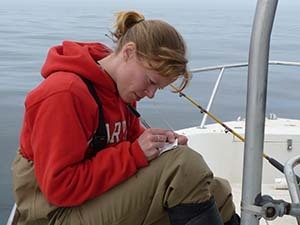
Report Date:
http://www.dfw.state.or.us
NEWPORT, Ore – ODFW and Oregon State Police have seen an increase in improperly tagged fish during the 2021 halibut and salmon seasons resulting in many citations to licensed anglers.
Anyone fishing who had not properly tagged (or not tagged at all) their catch of salmon or halibut received citations during recent offshore boat patrols by OSP’s Marine Team.
The requirement for tagging is that upon taking an adult salmon, steelhead, legal size sturgeon, or Pacific halibut, the angler must immediately enter the codes for the species caught, location code where the fish was taken and the month and date of the catch.
This applies to both paper and electronic tags, even when offshore and out of cell service.
Lynn Mattes, ODFW’s Pacific Halibut and Groundfish Leader said that “anglers on about half of the vessels contacted during a recent offshore boat patrol said they thought they just had to fill out the tag by the time they got back to the dock.”
“There were also issues with anglers not being able to or not knowing how to pull up their e-tag while offshore and out of cell service. The Trooper I was with did a lot of education about using airplane mode to help,” added Mattes.
The issue of e-tagging halibut or salmon is not isolated to this fishery alone. Throughout the state, anglers and hunters are reminded to become familiar with the e-tag process before they head out to harvest fish or wildlife. Check ODFW’s article on how to tag fish and game using e-tagging or paper tags.
“If you have enough time to get your line back in the water or grab a snack, there is enough time to validate your tag. Not doing so is poaching and will likely result in a citation when contacted by Troopers,” said Lt. Howell.
Click here for shareable online news release
Photo; A halibut angler tags her harvested halibut. Anglers must immediately tag harvested halibut and salmon.
The Stop Poaching Campaign educates the public on how to recognize and report poaching. This campaign is a collaboration among hunters, conservationists, landowners, and recreationists. Our goal is to increase reporting of wildlife crimes through the TIP Line, increase detection by increasing the number of OSP Fish and Wildlife Troopers and increase prosecution. OHA manages the reward fund. This campaign helps to protect and enhance Oregon’s fish and wildlife and their habitat for the enjoyment of present and future generations. Contact campaign coordinator Yvonne Shaw for more information, Yvonne.L.Shaw@odfw.oregon.gov.